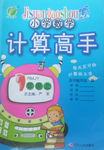题目内容
— Don’t worry, Mum. The doctor said it was only the flu.
—____! I’ll tell Dad there’s nothing serious.
| A.What a relief | B.Congratulations |
| C.How surprising | D.I’m so sorry |
A
解析试题分析:考查情景交际。A真让人轻松;B恭喜你!C真让人惊讶;D对不起;句意:—不要担心,医生说这只是一个感冒。—真让人轻松!我告诉爸爸没有什么大不了的。故A正确。
考点:考查交际用语
点评:英语中日常交际用语比较多,诸如打电话、购物、问候、看医生等涉及到生活的方方面面。平时的英语学习要对这些场景所用的英语有一定的了解,知道各个场景下的习惯用语及固定句型。同时,也可以通过排除法对题目进行解答。

 计算高手系列答案
计算高手系列答案
| |||||||||||||||||||||||||||||||||||||||||||||||||||||||||||